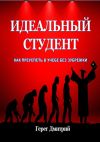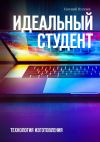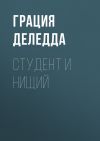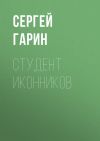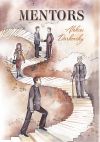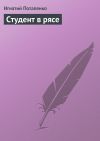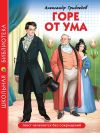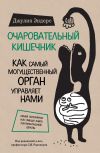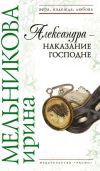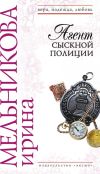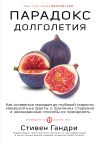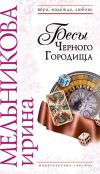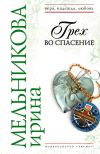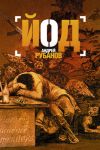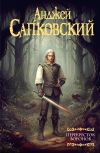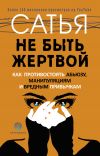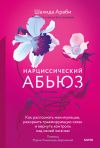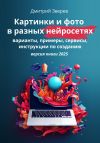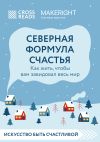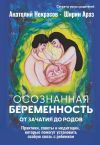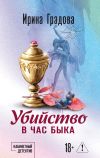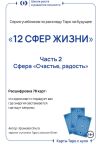
Автор книги: Радмила Шарифьянова
Жанр: Языкознание, Наука и Образование
Возрастные ограничения: 12+
сообщить о неприемлемом содержимом
Sample answer
Interviewer: How has reading impacted your academic performance? In what ways has it helped you succeed in school?
Student: In my opinion, reading has greatly impacted my academic performance. Through reading, I have been able to improve my vocabulary, comprehension skills, and critical thinking abilities. Reading has exposed me to different perspectives and ideas, which has helped me develop a deeper understanding of various topics. Furthermore, reading has enabled me to perform better on exams and assignments as I am able to interpret and analyze texts more effectively.
Interviewer: Do you think that reading is an important part of education? How can schools encourage students to read more?
Student: Yes, I strongly believe that reading is an essential part of education. Reading helps students develop cognitive skills such as language acquisition, comprehension, and analytical thinking. Schools can encourage students to read more by providing access to a diverse range of books, setting aside time for independent reading, and incorporating reading into coursework. Additionally, educators can promote book clubs and reading competitions to create a sense of community and foster a love of reading.
Interviewer: How do you think reading can help students develop critical thinking and analytical skills? Can you give any examples?
Student: Reading can help students develop critical thinking and analytical skills by exposing them to new ideas and perspectives. For example, when reading a news article, students must analyze the information presented and evaluate its credibility. This requires critical thinking skills such as identifying biases and analyzing sources. Additionally, when reading literature, students must interpret and analyze characters’ motivations and actions, which allows them to develop analytical skills.
Interviewer: Have you ever been assigned a book for school that you didn’t enjoy reading? If so, how did you approach the task of reading it?
Student: Yes, I have been assigned books for school that I didn’t particularly enjoy. In such cases, I try to approach the book with an open mind and give it a fair chance. I also try to identify aspects of the book that I find interesting and focus on those elements. Furthermore, I often discuss the book with my classmates and teachers to gain different perspectives and insights.
Interviewer: What advice would you give to someone who wants to improve their reading skills for academic purposes?
Student: My advice would be to practice reading regularly and to read a variety of materials. Reading newspapers, magazines, and even social media posts can help improve reading speed and comprehension. Additionally, using tools such as annotation and note-taking can help increase engagement and retention of information. Finally, seeking feedback and guidance from teachers or tutors can provide valuable insights and strategies for improvement.
Interviewer: Thank you very much for your interview.
The future of readinG
Interviewer: Hello everybody! It’s Teenagers Round the World Channel. Our guest today is a teenager from Russia and we are going to discuss the future of reading. We’d like to know our guest’s point of view on this issue. Please answer five questions. So, let’s get started.
Interviewer: How do you think the way we read books will change in the future? Do you see any new technologies or formats emerging?
Student: _________________________
Interviewer: Will physical books still be relevant in the future, or will e-books become the standard? Why?
Student: _________________________
Interviewer: How do you think social media and online communities will impact the way we consume literature in the future?
Student: _________________________
Interviewer: Do you think that the rise of audiobooks and podcasts will change the way we approach reading and storytelling? How so?
Student: _________________________
Interviewer: What advice would you give to young writers who want to create literature for the future?
Student: _________________________
Interviewer: Thank you very much for your interview.
Sample answer
Interviewer: How do you think the way we read books will change in the future? Do you see any new technologies or formats emerging?
Student: With the rapid advancement of technology, it is highly likely that the way we read books will continue to evolve in the future. We can expect to see more interactive and immersive reading experiences through the use of virtual reality and augmented reality. Additionally, AI-powered tools may allow for personalized reading recommendations and adaptive content based on individual reading habits.
Interviewer: Will physical books still be relevant in the future, or will e-books become the standard? Why?
Student: While e-books have gained popularity in recent years due to their convenience and accessibility, I believe physical books will remain relevant in the future. There is a certain charm and aesthetic appeal to physical books that cannot be replicated by e-books. Moreover, physical books allow for a multisensory experience, such as the texture and smell of the pages, which can enhance the overall reading experience.
Interviewer: How do you think social media and online communities will impact the way we consume literature in the future?
Student: Social media and online communities have already had a significant impact on the way we consume literature, allowing readers from all over the world to connect and engage with each other. In the future, we can expect to see an even greater integration of social media and literature, with authors using these platforms to promote their work and interact with readers. This will also lead to more diverse and inclusive literature, as underrepresented voices gain a platform through social media communities.
Interviewer: Do you think that the rise of audiobooks and podcasts will change the way we approach reading and storytelling? How so?
Student: The rise of audiobooks and podcasts has already changed the way we approach reading and storytelling. Audiobooks and podcasts provide a convenient alternative for those who are not able to physically read, or for those who prefer to consume content while multitasking. This has led to the growth of audio-only storytelling, with some authors now releasing audiobooks before physical or e-book formats. As a result, we can expect to see more experimentation with audio-only formats in the future.
Interviewer: What advice would you give to young writers who want to create literature for the future?
Student: My advice to young writers would be to stay true to your voice and vision, and to not be afraid to take risks and experiment with new formats and styles. It is also important to stay informed about current trends and technologies that may impact the future of literature. Finally, it is crucial to build a supportive community of fellow writers and readers who can provide feedback and encouragement along the way.
The importance of libraries
Interviewer: Hello everybody! It’s Teenagers Round the World Channel. Our guest today is a teenager from Russia and we are going to discuss the importance of libraries. We’d like to know our guest’s point of view on this issue. Please answer five questions. So, let’s get started.
Interviewer: Can you describe why you think libraries are important for teenagers? What benefits can they offer?
Student:_________________________
Interviewer: Have you ever used a library before? If so, can you describe your experience? What resources did you use?
Student: _________________________
Interviewer: Do you think that libraries are still relevant in the digital age? Why or why not?
Student: _________________________
Interviewer: How do you think libraries could better serve teenagers in the future? Are there any changes they should make?
Student:_________________________
Interviewer: What advice would you give to someone who wants to become a more active user of their local library?
Student:_________________________
Interviewer: Thank you very much for your interview.
Sample answer
Interviewer: Can you describe why you think libraries are important for teenagers? What benefits can they offer?
Student: Libraries are important for teenagers because they provide access to a wide range of resources that can enhance their academic and personal growth. Libraries offer books, magazines, journals, and online databases that can support research and learning. Additionally, libraries may offer educational programs, workshops, and events that can expand teenagers’ knowledge and skills.
Interviewer: Have you ever used a library before? If so, can you describe your experience? What resources did you use?
Student: Yes, I have used my local library before. My experience was very positive as the library provided access to a variety of resources that were not available elsewhere. I primarily used the library for research purposes, accessing databases and borrowing books that were relevant to my studies.
Interviewer: Do you think that libraries are still relevant in the digital age? Why or why not?
Student: Yes, I believe that libraries are still relevant in the digital age. While many resources are now available online, libraries continue to play an important role in providing access to physical materials that may not be available digitally. Additionally, libraries provide a physical space for studying, collaborating, and learning that cannot be replicated by digital resources alone.
Interviewer: How do you think libraries could better serve teenagers in the future? Are there any changes they should make?
Student: Libraries could better serve teenagers in the future by increasing their outreach efforts to schools and community organizations, offering more diverse programming that appeals to teenagers’ interests and needs, and expanding their collection of digital resources such as e-books and online databases.
Interviewer: What advice would you give to someone who wants to become a more active user of their local library?
Student: My advice would be to explore all the resources that the library has to offer, including online databases, ebooks, audiobooks, and other digital media. Attend library events, book clubs, and workshops to connect with other library users and discover new resources. Finally, don’t be afraid to ask librarians for recommendations or assistance in finding resources that align with your interests and needs.
Book recommendations for teenagers
Interviewer: Hello everybody! It’s Teenagers Round the World Channel. Our guest today is a teenager from Russia and we are going to discuss book recommendations for teenagers. We’d like to know our guest’s point of view on this issue. Please answer five questions. So, let’s get started.
Interviewer: Can you recommend any books that you think all teenagers should read? Why do you find these works important?
Student: _________________________
Interviewer: What types of books or genres do you think are particularly popular among teenagers? Why do you think these works resonate with them?
Student:_________________________
Interviewer: How do you typically discover new books to read? Do you rely on recommendations from others, or do you have other methods?
Student: _________________________
Interviewer: Have you ever been surprised by a book that you initially didn’t expect to enjoy? If so, can you describe your experience?
Student: _________________________
Interviewer: What advice would you give to someone who wants to become a more engaged reader but doesn’t know where to start?
Student: _________________________
Interviewer: Thank you very much for your interview.
Sample answer
Interviewer: Can you recommend any books that you think all teenagers should read? Why do you find these works important?
Student: Yes, I would highly recommend «To Kill a Mockingbird» by Harper Lee as it deals with important issues such as racism and social injustice, while also highlighting the importance of empathy and compassion. I would also recommend «The Catcher in the Rye» by J.D. Salinger for its exploration of teenage angst and identity formation.
Interviewer: What types of books or genres do you think are particularly popular among teenagers? Why do you think these works resonate with them?
Student: Young adult fiction, dystopian fiction, and fantasy novels are popular among teenagers. These works often deal with themes of identity, relationships, and self-discovery, which resonate with teenagers who are going through similar experiences. Additionally, these genres often include strong and relatable protagonists, which can be empowering for young readers.
Interviewer: How do you typically discover new books to read? Do you rely on recommendations from others, or do you have other methods?
Student: I typically discover new books to read through a combination of methods. I often rely on recommendations from friends and family, as well as book reviews and best-seller lists. I also like to browse bookstores and libraries to discover new titles that catch my interest.
Interviewer: Have you ever been surprised by a book that you initially didn’t expect to enjoy? If so, can you describe your experience?
Student: Yes, I was pleasantly surprised by «The Master and Margarita» by Mikhail Bulgakov. At first, I thought it may be a difficult read due to its length and complexity, but I ended up finding it to be a fascinating and thought-provoking story about the human condition, morality, and power.
Interviewer: What advice would you give to someone who wants to become a more engaged reader but doesn’t know where to start?
Student: My advice would be to start by exploring different genres and authors, even if they are outside of your comfort zone. Joining a book club or following Bookstagram accounts on social media can also provide inspiration and recommendations for new titles to read. Finally, it’s important to approach reading with an open mind and to allow yourself to fully immerse in the story being told.
The importance of book clubs
Interviewer: Hello everybody! It’s Teenagers Round the World Channel. Our guest today is a teenager from Russia and we are going to discuss the importance of book clubs. We’d like to know our guest’s point of view on this issue. Please answer five questions. So, let’s get started.
Interviewer: Can you describe why you think book clubs are important for teenagers? What benefits can they offer?
Student: _________________________
Interviewer: Have you ever participated in a book club before? If so, can you describe your experience? What did you enjoy about it?
Student: _________________________
Interviewer: Do you think that book clubs can help teenagers improve their reading skills or develop a love for literature? How so?
Student: _________________________
Interviewer: How do you think technology has impacted the way book clubs operate? Are there any new trends or platforms emerging?
Student: _________________________
Interviewer: What advice would you give to someone who wants to start a book club with their friends or classmates?
Student: _________________________
Interviewer: Thank you very much for your interview.
Sample answers
Interviewer: Can you describe why you think book clubs are important for teenagers? What benefits can they offer?
Student: Book clubs are important for teenagers as they provide a space for discussion and critical thinking about literature. They also help to build a sense of community and shared interests among members. Additionally, participating in book clubs can broaden teenagers’ perspectives and expose them to new ideas.
Interviewer: Have you ever participated in a book club before? If so, can you describe your experience? What did you enjoy about it?
Student: Yes, I have participated in a book club before. My experience was very positive as it allowed me to connect with other readers and engage in meaningful discussions about the books we read. I enjoyed hearing different perspectives on the same text and learning from others’ interpretations and insights.
Interviewer: Do you think that book clubs can help teenagers improve their reading skills or develop a love for literature? How so?
Student: Yes, I believe that book clubs can help teenagers improve their reading skills as they encourage active reading and critical thinking. By discussing the themes, characters, and plot of a book, teenagers can deepen their understanding of the text and hone their analytical skills. Additionally, being part of a book club can foster a love for literature by exposing teenagers to new genres and authors and encouraging them to explore different works.
Interviewer: How do you think technology has impacted the way book clubs operate? Are there any new trends or platforms emerging?
Student: Technology has greatly impacted the way book clubs operate by allowing members to connect and communicate remotely. Virtual book clubs via video conferencing software have become increasingly popular due to their convenience and accessibility. Social media platforms also allow for book clubs to share recommendations, reviews, and discussions online.
Interviewer: What advice would you give to someone who wants to start a book club with their friends or classmates?
Student: My advice would be to choose a diverse range of books that cater to different interests and perspectives, establish clear expectations and guidelines for participation, and create a comfortable and welcoming environment for discussion. It is also important to allow for open and respectful dialogue and to encourage all members to share their thoughts and opinions.
Literature
Interviewer: Hello everybody! It’s Teenagers Round the World Channel. Our guest today is a teenager from Russia and we are going to discuss literature. We’d like to know our guest’s point of view on this issue. Please answer five questions. So, let’s get started.
Interviewer: What genre of literature do you enjoy reading the most and why?
Student: _________________________
Interviewer: How has reading impacted your life?
Student: _________________________
Interviewer: Do you prefer reading books in their original language or translated versions? Why?
Student: _________________________
Interviewer: What book would you recommend for someone who has never read before and why?
Student: _________________________
Interviewer: In your opinion, what is the value of literature in today’s society?
Student: _________________________
Interviewer: Thank you very much for your interview.
Sample answer
Interviewer: What genre of literature do you enjoy reading the most and why?
Student: I enjoy reading historical fiction the most, as it allows me to learn about different time periods and cultures while also being entertained by a compelling story. Historical fiction also often incorporates real-world events and characters, which can provide insight into the human experience.
Interviewer: How has reading impacted your life?
Student: Reading has had a significant impact on my life in many ways. It has broadened my perspective, enriched my vocabulary, and improved my critical thinking skills. Reading has also been a source of comfort and escape during difficult times, allowing me to immerse myself in different worlds and characters.
Interviewer: Do you prefer reading books in their original language or translated versions? Why?
Student: I prefer reading books in their original language if possible, as I believe that translations may not always capture the full meaning and nuance of the original text. Additionally, reading in the original language allows for a deeper appreciation of the author’s writing style and cultural context.
Interviewer: What book would you recommend for someone who has never read before and why?
Student: I would recommend «The Alchemist» by Paulo Coelho, as it is a short and accessible book that explores important themes such as personal growth and self-discovery. It is also written in a simple and straightforward style, making it an ideal choice for someone who is just beginning to explore the world of literature.
Interviewer: In your opinion, what is the value of literature in today’s society?
Student: Literature plays an important role in society by providing a window into different perspectives and experiences, fostering empathy and understanding, and promoting critical thinking. Literature also has the power to inspire and challenge readers, encouraging them to reflect on their own beliefs and values. Finally, literature offers a form of entertainment and escapism that can help alleviate stress and anxiety in our daily lives.
Внимание! Это не конец книги.
Если начало книги вам понравилось, то полную версию можно приобрести у нашего партнёра - распространителя легального контента. Поддержите автора!